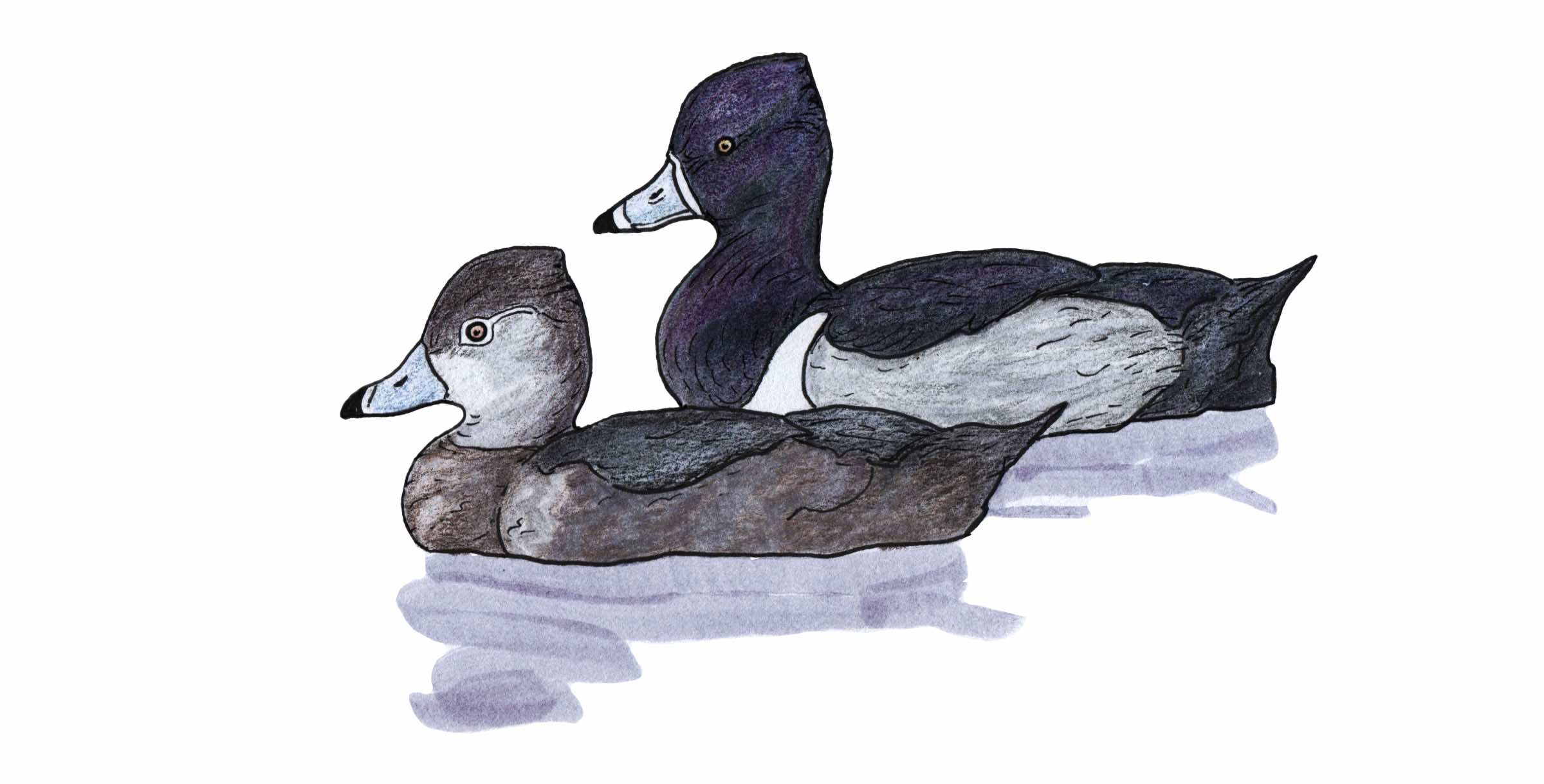Ring-necked Duck
Aythya collaris
Interested in reading the “Bird Ethnography of the Chugach Region” book?
Ring-necked Duck
Aythya collaris
No translation available
Description
Male Ring-necked Ducks are completely black besides gray or white sides and a bright yellow eye. Their bill is gray with a black tip and two white rings. Female Ring-necked Ducks are grayish brown with a white ring around the eye and a matching bill to the males. Their name, “ring necked,” is from a reddish-brown ring around the base of the neck. However, the ring on the neck is incredibly difficult to see, so they’re often referred to as “ringbills” instead.
Ring-necked Duck
Illustration by Kim McNett
Habitat and Status
The Ring-necked Duck is a rare spring migrant in the Chugach Region. They occasionally breed in the upper Cook Inlet and are associated with marshes and lakes in boreal forest. Ring necked Ducks are usually seen in shallow waters (less than 4 feet) with lots of vegetation. During their breeding season, these ducks don’t start to build a nest until the female has started to lay eggs (up to 14!). Once that happens the female will start to make a simple bowl tucked into the heavy vegetation of marshes. Audubon models suggest this species may become more common in the Chugach Region as its summer and winter ranges shift northward by 2080 in response to a warming climate.
Distribution of Ring-necked Ducks in the Chugach Region
Continue Your Search Below



